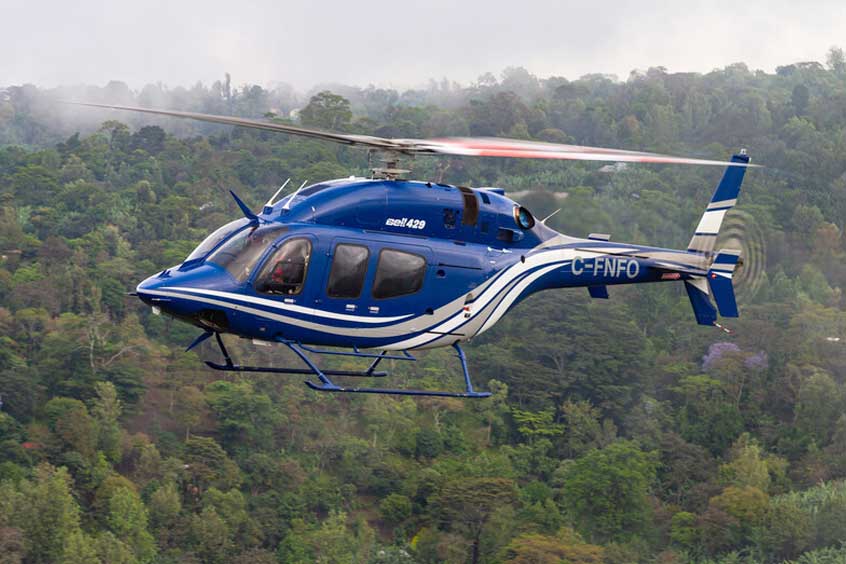 The monthly news publication for aviation professionals.
The monthly news publication for aviation professionals.

Customers in Africa have taken delivery of and signed a purchase agreement for the Bell 429.
The Bell 429 is a popular choice for the African market and continues to demonstrate qualities such as safety, reliability and performance. The aircraft also offers a smooth, peaceful ride as well as a spacious and customisable cabin depending on mission type.
Caverton Helicopters Limited in Cameroon signed a purchase agreement for the first oil and gas configured Bell 429 in west Africa. Caverton Helicopters is a subsidiary of the Caverton Offshore Support Group, which is a fully integrated offshore support company providing aviation and marine logistics services to businesses operating in the oil and gas industry in Nigeria and across west Africa.
“Having operated a variety of Bell products across our operations over the years, we are excited to continue with this brand, which is synonymous with safety and excellent performance,” says Caverton Helicopters MD Bello Ibrahim. “Introducing the Bell 429 into our fleet is an exciting milestone for us and will enable us to provide the best support for our oil and gas clients across the continent.”
Bell MD for Africa and the Middle East Sameer Rehman adds: “We are proud to support our customers in Africa with the Bell 429. With two now operating in South Africa and a third one soon to be operating in west Africa, the aircraft continues to excel across the many market segments for which it was designed. Featuring state-of-the-art technology to provide enhanced safety, comfort, performance and most importantly reliability, we are confident that these aircraft will help support on whatever their missions entail.”
The newly delivered 429 will be used for corporate transportation. Thanks to its large cabin, speed and modern technology, proving critical to its operators, there are a variety of configurations available, enabling the platform to perform missions ranging from energy to law enforcement and public safety.
With more than 602,000 global flight hours, there are now 430 Bell 429 in operation, more than 20 of which are in the Middle East and Africa.